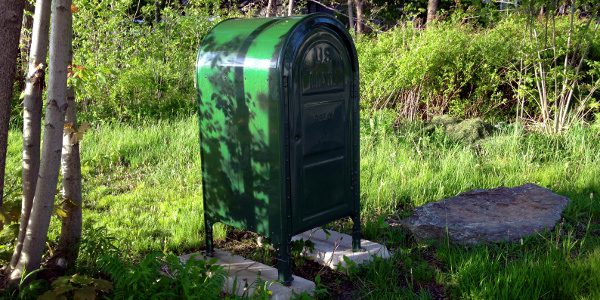Is contemporary Paganism splitting, perhaps schisming? That’s the proposition of The Matter Of The Gods by Jonathan Woolley, posted on Gods & Radicals last month and also published in A Beautiful Resistance. Woolley says it is, and he comes down strongly in favor of one side of the split. He says:
Let us not worry unnecessarily over the matter of the gods; but explore it with curiosity, and accept the inevitably of many answers to the same questions. Let us leave belief—and all the problematic baggage that it carries—behind.
For there are far more important conversations; over how we should govern ourselves, about the security of our water and our weather, and about who our friends (and enemies) are. Because the more situated, the more contemporary, the more specific in time and space, the more rooted in the pragmatic concerns and the lived experiences of people today our spirituality is, the more like the wisdom of the ancients it becomes.
There is much to like in this essay. Woolley’s history is solid, especially his point that since the demise of Christianity’s death-grip on personal belief and practice in the West, religion has become diverse and complicated and beautifully so. As I discussed in my last post, most people’s definition of religion is filled with unexamined Christian assumptions, many of them straight out of Victorian colonialism. But that definition doesn’t hold true in the rest of the world, and it need not hold for us.
But Woolley falls into this same trap when he examines the state of contemporary Paganism:
It is assumed that the question “What is Paganism?” can be answered with reference to a particular set of ideas, that owe their validity to a single authoritative source. In doing this, we treat Christianity – with its emphasis on just such an arrangement – as the gold standard to which we must aspire.
Woolley looks at several models of Paganism (including my own Four Centers of Paganism) but says they’re an attempt to force us into “a community joined by common belief.” This is a misreading of the Four Centers model, which is not a definition but an attempt to describe what people who go to Pagan events, buy Pagan books, write and comment on Pagan blogs, and generally identify as Pagans think and do. Belief is part of that, but only one part, and for many it’s far from the most important part.
 Still, Woolley is right that there’s a split between polytheists and other Pagans, to an extent that some polytheists would take issue with my use of the word “other” in this sentence. This is a natural and inevitable part of the maturation of Paganism. We’ve moved from the joy of being freed from religions that don’t fit us to deep theological and philosophical contemplation (though there have always been people doing deep thinking and devoted practice). And our deep contemplations are leading us toward many expressions of Pagan and polytheist belief and practice, not one.
Still, Woolley is right that there’s a split between polytheists and other Pagans, to an extent that some polytheists would take issue with my use of the word “other” in this sentence. This is a natural and inevitable part of the maturation of Paganism. We’ve moved from the joy of being freed from religions that don’t fit us to deep theological and philosophical contemplation (though there have always been people doing deep thinking and devoted practice). And our deep contemplations are leading us toward many expressions of Pagan and polytheist belief and practice, not one.
I have long argued that in order for polytheism to become widespread, it must be as accessible and welcoming to the plumber and the accountant as it is to the mystic and the priest. If Jonathan Woolley wishes to devote himself to “practical concerns” and pour an occasional libation, so be it. Our movement – and our world – needs radicals and activists as much as it needs theologians and ritualists. Let each of us do what we’re called to do and honor the Gods in the ways They require of us.
Where I take issue with this essay is the contention that the Gods and our thinking about the Gods are unimportant.
Woolley repeats a famous quote from author Terry Pratchett:
Most witches don’t believe in gods. They know that the gods exist, of course. They even deal with them occasionally. But they don’t believe in them. They know them too well. It would be like believing in the postman. (1)
Terry Pratchett was brilliant and funny, and for his audience (far more Sci-Fi and fantasy fans than actual witches and Pagans) this quote was perfect. It emphasizes that we best know the Gods through first-hand experience, not through unreflective acceptance of someone else’s ideas about Them.
But too many Pagans and would-be polytheists take this quote a bit too literally. We know the postman exists, of course. Mail appears in our box every day. Outgoing mail disappears and a few days later we get confirmation it arrived. Sometimes we see our postman in the neighborhood, and on rare occasion we may actually speak to him.
But the vast majority of the time we don’t think about the postman. We don’t even think about the things he does for us. We just walk to the box with certainty that the mail will be there, or if the box is empty, with certainty that we got lucky and no one sent us junk mail or a bill today. We take the postman for granted.
 We never notice that the postman is actually a woman named Carolyn who has two children and skates in roller derby on the weekends, who loves sushi and spends her vacations hiking in the mountains. Because we never talk to her, we never hear about the mystical waterfall she found in Colorado or the time she got caught on the side of a mountain in a thunderstorm and thought she was going to die. (2)
We never notice that the postman is actually a woman named Carolyn who has two children and skates in roller derby on the weekends, who loves sushi and spends her vacations hiking in the mountains. Because we never talk to her, we never hear about the mystical waterfall she found in Colorado or the time she got caught on the side of a mountain in a thunderstorm and thought she was going to die. (2)
We just see the mail coming and going. We know the postman exists, but she isn’t very important to us.
For many polytheists, not only is believing in the Gods not sufficient, neither is knowing Them at the level we know the postman. We will only be satisfied with knowing Them at a level where we understand Them as real, distinct, individual beings with sovereignty and agency. We must know Them as persons, not merely as roles.
Our beliefs are our attempts to correlate our experiences of and thoughts about the Gods with the experiences and thoughts of our ancestors and of our fellow polytheists. They are not creeds to be recited verbatim – we are not so arrogant as to think we know everything that’s important about any one God, much less the Gods in general. Rather, they are working hypotheses, constantly subject to revision as our experience and knowledge grow.
I do not want polytheism to become a network of clerical and monastic orders where pious levels of devotion are required for admission. We need those clerical and monastic orders (and a bunch of individuals doing pious levels of devotion) but we also need plumbers and accountants… and activist academics. At Imbolc, there is room at Brighid’s altar for everyone to make an offering, including those who only know Her as an Irish Goddess who may or may not have a connection with a Catholic saint of the same name.
Jonathan Woolley is right – the Western legacy of Christianity has left us with the unworkable idea that all religions should either convert or converge to one. But there are already many polytheisms: some revived, some reconstructed, and some – such as the African Traditional Religions – that have existed continuously for thousands of years. Many Gods, many ways.
While we need not and should not fight over belief, neither should we discount it. Some just want to pick up their mail, but others want to know the Postmen in all Their glorious wisdom and might.
(1) from Witches Abroad, 1991.
(2) Morpheus Ravenna discussed this idea in more depth in her keynote address at last year’s Many Gods West conference.

















